
WHITE LABELING
White Labeling Made Easy
Businesses don’t have to develop a unique product to break into the market. If you know there’s an existing product that would support your brand, or there’s an opportunity to leverage your brand to market a winning product, then you should consider white labeling.
Simply determine the kind of product you want to sell, and Hifida can help you source that product, make sure that product stays in line with your quality standards, and develop unique packaging to elevate your brand.
While individual projects may vary in product type and goals, the sourcing process is typically comprised of the 8 following steps
form a plan
- During this conversation, we discuss sourcing goals in terms of price, timeline, etc. Understand the client’s “must-haves” and pain points.
- To start the process, we meet with the client and discuss product to be sourced. Gather relevant documents and necessary information.


research suppliers
- Once the goals and objectives are set, we gather a list of roughly 15-20 relevant suppliers (i.e., factories) based on the fit between the product and factory.
- We perform due diligence on these suppliers and narrow it down to 2-3. Conduct in-person audit of the suppliers on the short list and select final supplier to partner with.
commission a sample
- Before making a purchase, it is important to product a sample (prototype) so that the client is able to assess the quality of the product. We work with the clients to supply the manufacturer with necessary documents to produce samples (AI files, CAD, STP, physical prototype, etc.). For new products, we often work hand-in-hand with the clients to create the relevant design files.
- We perform due diligence on these suppliers and narrow it down. When the sample (prototype) is completed, we inspect it and send the sample to the client for inspection, feedback, adjustment, and approval. Conduct in-person audit of the suppliers on the short list and select final supplier to partner with.


place the order
- Once the client is happy with the sample, we finalize order/price negotiations with the supplier. This entails negotiating the best terms for our clients on price, quantity, production time, …etc.
- The client then pays the deposit for the order, and we ensure that the order is successfully and correctly placed with the supplier.
oversee production
- Once the client is happy with the sample, we finalize order/price negotiations with the supplier. This entails negotiating the best terms for our clients on price, quantity, production time, …etc.
- The client then pays the deposit for the order, and we ensure that the order is successfully and correctly placed with the supplier.


inspect the final product
- Once the supplier has finished the product, we will manually/visually test and evaluate the final product, ensuring quality before shipment.
- We typically send videos of the finished product to the client and also video call the client so that they can see the product visually before shipment.
arrange shipment + Export
- Before the shipment lands in the U.S. (or which other country the client is based in), we prepare necessary documents for importation and customs clearance (e.g., Bill of lading packing list, commercial invoice, HTS codes, etc.)
- And finally once the shipment has cleared customs, we manage and oversee ground transportation to the clients’ warehouse.


clear customs
- Before the shipment lands in the U.S. (or which other country the client is based in), we prepare necessary documents for importation and customs clearance (e.g., Bill of lading packing list, commercial invoice, HTS codes, etc.)
- And finally once the shipment has cleared customs, we manage and oversee ground transportation to the clients’ warehouse.
Final Delivery
- Once customs has been cleared, Hifida will handle drayage for your order to the final destination.
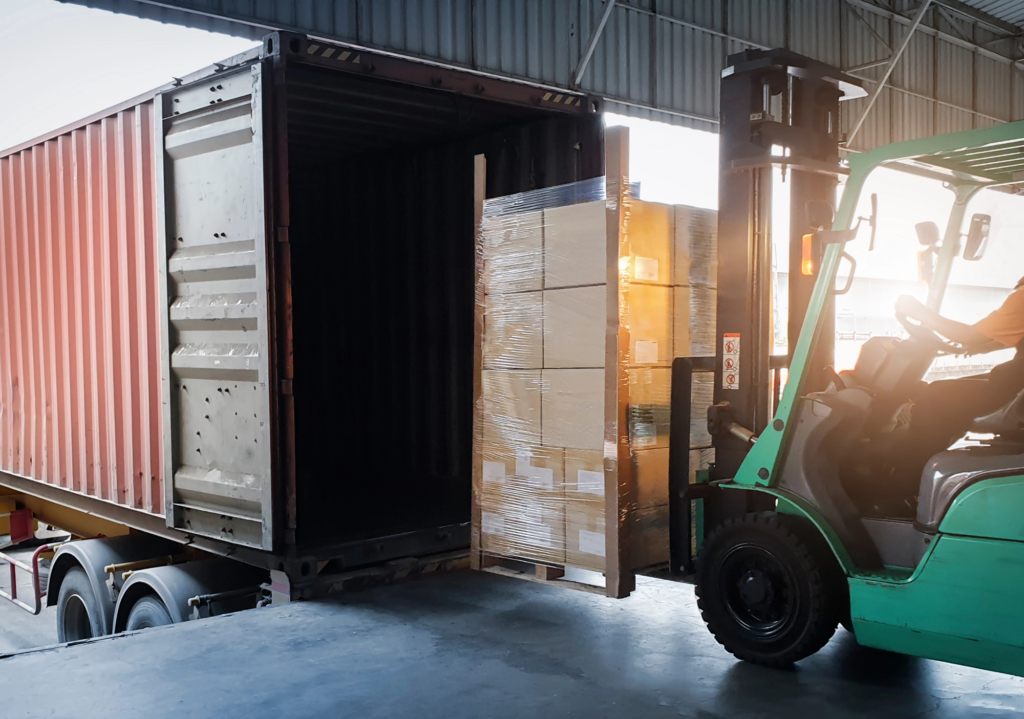
Hifida’s White Labeling Fee Structure
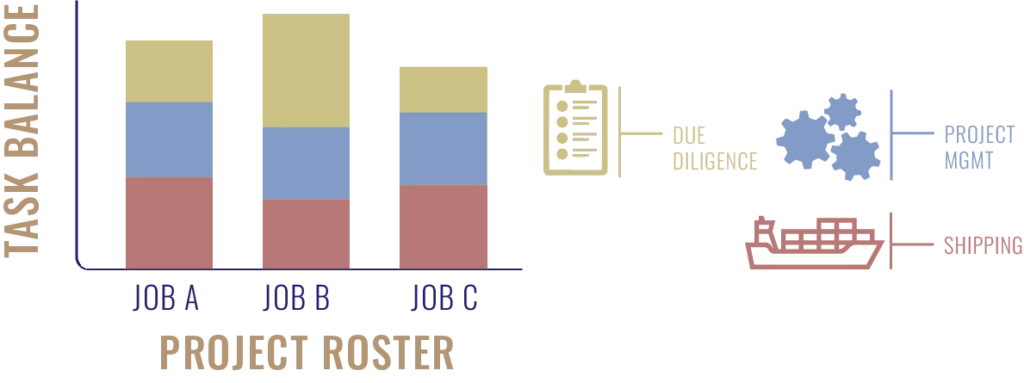
fee structuring
Our fee structuring is based on the following three components: due diligence of suppliers and/or products charged as an hourly rate for our time, management of production charged as a percentage of the total order value, and shipping coordination charged as a flat rate.
due diligence
Due diligence involves the discovery and set up of new suppliers and/or products or investigate services with existing suppliers. It requires current and prospective supplier research and selection, and sample ordering and arranging. The amount of due diligence hours spent on a project will depend on which one of the three buckets your project falls into; make-to-stock, make-to-order, or engineer-to-order.
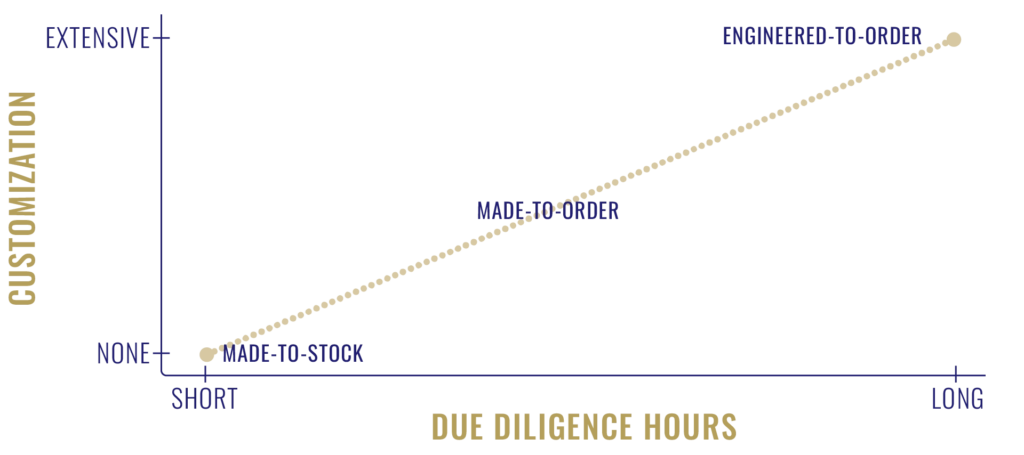

order management
Management of production begins after suppliers and samples are approved and production begins. Numerous tasks must be implemented to optimize productivity, minimize defect rates, and ensure successful production. These tasks include, but are not limited to, supervising manufacturing processes, negotiating prices, onsite inspections, analyzing manufacturing risks for pivoting to adjust if problems occur, optimizing communications between clients, primary suppliers, and raw material/component suppliers to maintain production schedules, etc.
shipping
Shipping coordination refers to Air freight and Sea freight, specifically container management. Several tasks are needed to successfully ship a container, including, but not limited to, coordination and consolidation of multi-supplier orders for transfer to the port of origin, securing dates for shipment and booking the vessel, confirming all import/export documents are correct and ready, confirming HS codes to ensure correct import duties/taxes, clearing customs, and organizing drayage to the final destination.
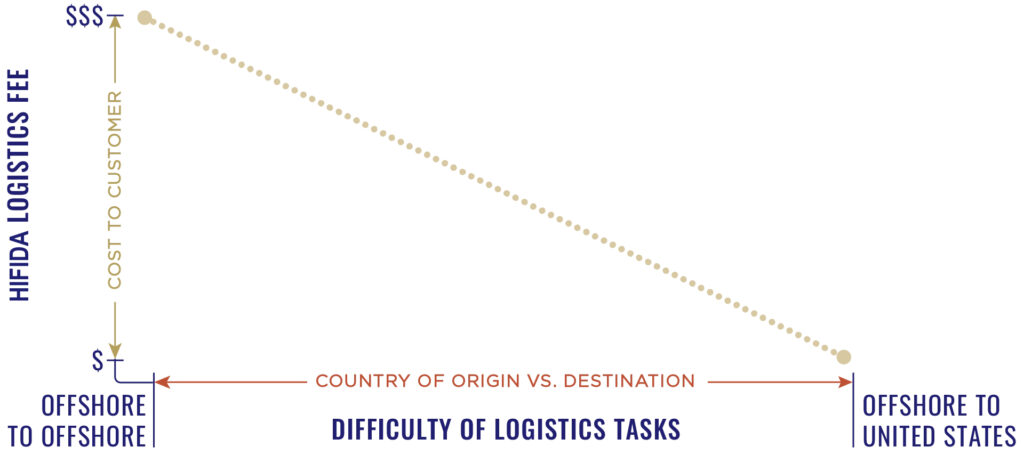
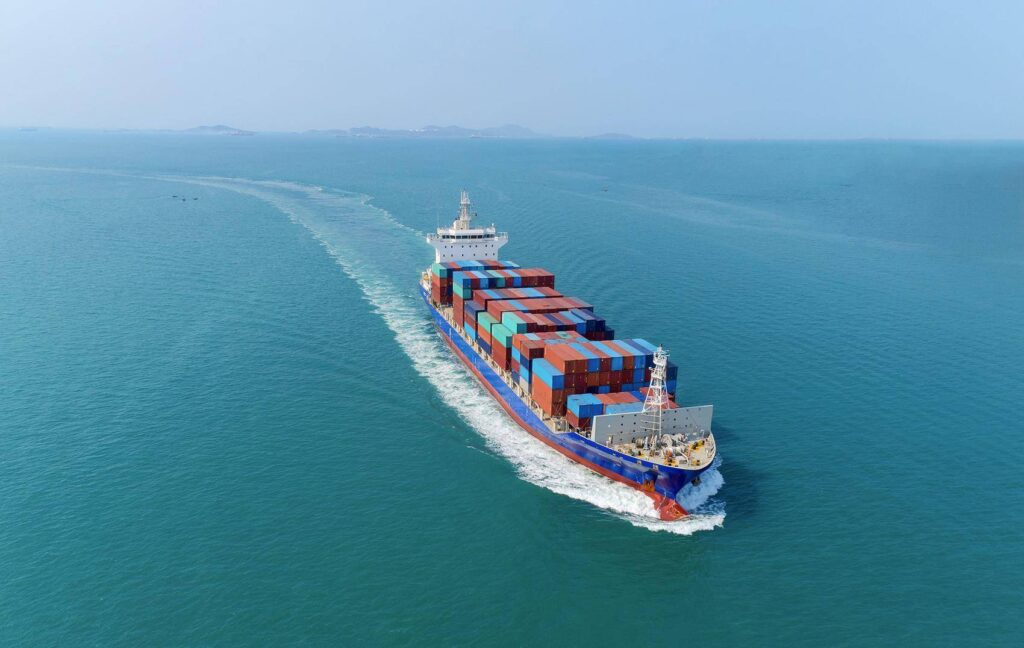
Need Help Importing From China?
Click below to get in touch with a Hifida Expert
White Labeling FAQ
 What is white labeling?
What is white labeling?
White labeling is the process of taking a product that already exists and applying a new brand to it. For example, a business may decide to sell metal water bottles (which are already being made), and put a logo on the bottle or sell the bottle in packaging unique to their brand.
 What is private labeling vs white labeling?
What is private labeling vs white labeling?
Private labeling and white labeling are similar, and sometimes are used interchangeably, but there is a nuanced difference between these two strategies. White labeling involves taking an existing product, putting a unique brand to it, and selling it through multiple retailers or sales channels.
Private labeling also takes existing products which are uniquely branded, but where they are sold is different. Private labels are sold exclusively through one retailer (hence the word “private.”) For example, the store brand Equate is exclusively sold through Wal-Mart, which makes it a private label product.
 How do I choose a product to white label?
How do I choose a product to white label?
There are multiple reasons you may choose a product to white label, including a product that’s:
- A good match for your specific brand or collection of products
- Trending, and you want to take advantage of a product fad (like fidget spinners or pop-its)
- Already winning in other markets, but have not been introduced elsewhere (like selling a product in the U.S. that has already proven to be popular in China)
Trustworthy, reliable manufacturers will accept common payment methods. Sourcing agents, like Hifida, will make sure that your payment is secure and that you are working with a trustworthy, reliable manufacturer.
 Should my business white label a product?
Should my business white label a product?
Not all businesses need to white label a product. However, there are several good reasons to do so, including:
- Product testing: If you’re curious if a product type will be successful or not, white labeling is a way to test the market without investing resources into customizing a product or developing an entirely new one.
- Product fads: If your business tries to take advantage of product fads, then white labeling is a way to make sure you get a product to market while it’s still popular.
- New business: If you’re just getting your business or brand off the ground, you may not have the resources needed to develop a new product (or you may not be in a position to take the risk of a new product). White labeling is a way for businesses to be able to sell products while keeping their overall risk low.
 What are white label products?
What are white label products?
White label products are generic products that are sold to businesses, who then brand those products. Vitamin supplements are an example of white label products, as most supplements are made by the same suppliers, but they are branded across a wide spectrum of different target demographics.
 How can I find white label products?
How can I find white label products?
There are businesses that sell products to be white labeled, but you can also connect with suppliers directly to source white label products. If you’re inexperienced with finding suppliers, you may want to partner with a sourcing specialist, like Hifida, to make sure you find a factory that’s a good fit.
 Can I customize a white label product?
Can I customize a white label product?
You can! In fact, many brands are developed by selling a white label product, gathering customer feedback, and then customizing the product to improve the customer experience. While customizing a white label product technically means it’s no longer “white label,” many suppliers that manufacture white label products can customize those products, too.
If you’re interested in partnering with a supplier that can customize white label products, you’ll need to make sure they have the engineering capacity to do so. If you aren’t sure how to find a supplier that can make and customize white label products, then consider partnering with a sourcing specialist, like Hifida, to help you find a supplier that’s a good fit.
 How do I find a supplier for white label products?
How do I find a supplier for white label products?
There are several ways you can find a supplier for white label products:
- Alibaba: Alibaba, and other similar websites, are platforms where businesses and suppliers can connect. If you know what product you want to source, you can use online platforms to search for suppliers that make those products.
- Sourcing specialist: You can also use a sourcing specialist (like Hifida) to help you find a supplier. They’ll use their own connections and tools to find factories that may be a good match, and then they’ll use their expertise to narrow down the options.
- Online search: You can search online for businesses that sell products exclusively for white labeling purposes. Your product choices will be more limited, but it may make for a shorter, easier search. Keep in mind businesses that sell products for white labeling will likely charge a premium that you can avoid by connecting with suppliers directly.
 How can I brand white label products?
How can I brand white label products?
You can brand white label products without customizing them. Instead, you can focus on factors like:
- Unique and high-quality packaging
- Logo placement
- Online marketing that emphasizes the characteristics of your brand over the actual product itself.
If you have a white label product that’s a success, you may want to consider creating a product iteration based on the customer feedback you receive.
 How does Hifida help make white labeling products a success?
How does Hifida help make white labeling products a success?
Hifida performs an enormous amount of work to make sure that you can source white label products with a high probability of success. We can’t guarantee products will be winners, but we can improve the odds by:
- Finding high-quality suppliers that specialize in your product type
- Negotiating the best prices so you can invest resources in other parts of your business
- Managing the sampling process to ensure that a supplier can successfully make a product
- Overseeing production to ensure quality control procedures are followed
- Planning shipment to make sure products are delivered to you as quickly as possible without unnecessary hangups in customs
If you want a sourcing specialist as a partner in helping make your white label products a success, we encourage you to reach out to us.




